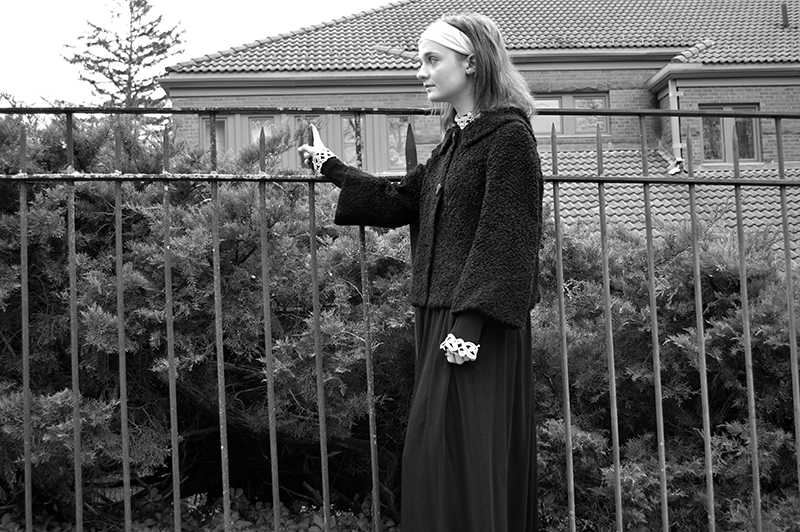Spacecraft escaping the Solar System

Distance from Sun (AU) Pioneer 10: 125.220 Pioneer 11: 103.732 Voyager 2: 122.804 Voyager 1: 148.103 New Horizons: 46.357 
Speed relative to Sun (km/s) Pioneer 10: 11.934 Pioneer 11: 11.224 Voyager 2: 15.326 Voyager 1: 16.967 New Horizons: 13.975 
Ecliptic latitude Pioneer 10: 3° Pioneer 11: 14° Voyager 2: -37° Voyager 1: 35° New Horizons: 2°
Declination Pioneer 10: 25° 57′ Pioneer 11: -8° 57′ Voyager 2: -57° 58′ Voyager 1: 12° 2′ New Horizons: -20° 28′
Right ascension Pioneer 10: 5h 10m Pioneer 11: 18h 52m Voyager 2: 20h 2m Voyager 1: 17h 15m New Horizons: 19h 12m
Constellation Pioneer 10: Taurus Pioneer 11: Scutum Voyager 2: Pavo Voyager 1: Ophiuchus New Horizons: Sagittarius

Distance from Earth (AU) Pioneer 10: 124.471 Pioneer 11: 104.650 Voyager 2: 123.581 Voyager 1: 148.694 New Horizons: 47.317
One-way light time (hours) Pioneer 10: 17.20 Pioneer 11: 14.51 Voyager 2: 17.13 Voyager 1: 20.61 New Horizons: 6.5
Brightness of Sun from spacecraft (Magnitude) Pioneer 10: -16.2 Pioneer 11: -16.6 Voyager 2: -16.3 Voyager 1: -15.8 New Horizons: -18.4
Spacecraft still functioning? Pioneer 10: no Pioneer 11: no Voyager 2: yes Voyager 1: yes New Horizons: yes
Launch Date Pioneer 10: 1972-Mar-03 Pioneer 11: 1973-Apr-06 Voyager 2: 1977-Aug-20 Voyager 1: 1977-Sep-05 New Horizons: 2006-Jan-19 We discuss the five spacecraft which are leaving the Solar System on escape trajectories – our first emissaries to the stars. On this scale, the nearest star to the Sun would be approximately 100 meters away, and it would take Voyager 1 about 70,000 years to cover that distance.
We discuss the five spacecraft which are leaving the Solar System on escape trajectories – our first emissaries to the stars. On this scale, the nearest star to the Sun would be approximately 100 meters away, and it would take Voyager 1 about 70,000 years to cover that distance.
https://www.heavens-above.com/SolarEscape.aspx?lat=33.448&lng=-112.073&loc=Phoenix&alt=343&tz=Arizona
featuring Model: Caroline Longo
all photographs by Michelle Gemma
The Full Wolf Moon of January,
and Lunar Eclipse in Cancer
10 January 2020
Mystic, CT USA